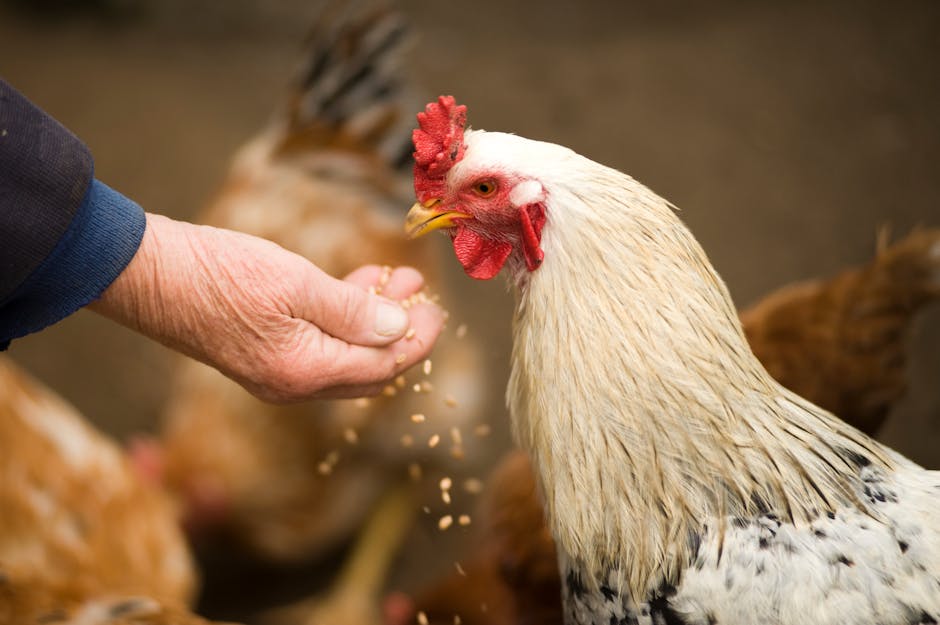In 2012, Phil and Jenn Tompkins from Pennsylvania came up with an idea that seemed almost too quirky to succeed. After being inspired by the growing interest in backyard farming, particularly raising chickens, they launched Rent The Chicken, a service that allows people to rent hens, coops, and everything they need to raise their own chickens for fresh eggs. But what started as an experiment quickly became a bustling business. Here’s how they turned a fun idea into a thriving company that’s grown beyond their expectations.
The Start of Something Unusual
Before launching Rent The Chicken, Phil and Jenn were no strangers to farming, but they had no plans to start a chicken rental service. However, they noticed how many people loved the idea of raising chickens but were intimidated by the commitment. People were concerned about buying coops, feed, and figuring out how to care for the animals long-term. Many loved the idea of fresh eggs but didn’t know if they could manage backyard chickens all year round.
That’s when the lightbulb moment came: What if they could offer people the chance to try raising chickens without the long-term responsibility?
Phil and Jenn decided to put their plan into action. They created packages where customers could rent hens for about six months, complete with a portable coop, feed, and instructions on how to care for the chickens. If at the end of the rental period, people decided they loved having chickens, they could buy them outright. If not, Rent The Chicken would come back and collect everything—no harm, no fowl.
The Unexpected Popularity
Phil and Jenn expected modest success—perhaps a few families in their local community would take up the offer. What they didn’t expect was how quickly Rent The Chicken would spread. Word-of-mouth took off, and soon people from neighboring states wanted in. The appeal was broad: families wanting to teach their kids where food comes from, individuals wanting a more sustainable way to get fresh eggs, and even people living in suburban areas who had always dreamed of having chickens but weren’t ready to commit.
In the first year, Rent The Chicken had more customers than they could handle, leading them to scale up their operations. They soon developed partnerships with farmers in other states, expanding their reach across the U.S. and even into Canada. As their business grew, so did the demand for more options. They began offering additional services like winter rentals for people wanting to keep chickens year-round and even expanding into rabbit rentals for families looking for smaller-scale experiences.
Challenges Along the Way
Despite their rapid growth, Phil and Jenn faced some significant challenges. One of the biggest hurdles was ensuring that the chickens were well taken care of by renters. Not everyone had experience with animals, so education became a crucial part of their business model. They started offering more in-depth training materials and even customer support hotlines for troubleshooting. Whether it was helping with a sick hen or answering questions about egg production, Phil and Jenn made sure renters always had a lifeline.
Another challenge was logistics. Coordinating rentals, especially when they expanded into other regions, was complicated. They needed reliable partners who shared their passion for ethical treatment of animals and sustainable farming. It took time to build a network of trusted farmers, but eventually, Rent The Chicken was able to grow without sacrificing their values.
The Golden Egg of Customer Experience
Rent The Chicken’s success lies in more than just their unique business model. They’ve excelled in creating an exceptional customer experience. From the moment someone inquires about renting chickens, Phil and Jenn’s team provides personalized service. They take care to match the right hens with the right families, ensuring that everyone, from first-time chicken owners to seasoned farmers, feels comfortable.
One of their standout features is the “Buy the Chickens” option. Many renters find themselves so attached to their hens that they don’t want to give them back. This has created a significant revenue stream for the business, allowing customers to purchase their rental hens permanently. This not only strengthens customer loyalty but also creates a sense of accomplishment for the renters, who transition from tentative chicken owners to full-time farmers.
The Growth of the Farm-to-Home Movement
Rent The Chicken didn’t just capitalize on a trend—they helped shape it. As more people became interested in sustainable living, organic food, and local farming, Rent The Chicken provided an accessible entry point into that lifestyle. Their service allowed people to experience the joys of raising animals and gathering fresh eggs, all without the long-term risks.
Their story is a testament to how small, out-of-the-box ideas can grow into something bigger than ever imagined. Phil and Jenn tapped into a niche market, but in doing so, they helped fuel a larger movement. Today, Rent The Chicken has expanded to numerous states, including major metropolitan areas where chickens were once unthinkable.
What’s Next for Rent The Chicken?
Looking ahead, Phil and Jenn are excited to continue expanding, but they’re also looking to innovate. They’ve been testing out new services, like educational packages for schools and events that allow kids to learn about raising chickens firsthand. They’ve even considered expanding internationally, as interest in sustainable backyard farming continues to grow worldwide.
Rent The Chicken may have started as a fun idea, but it has become an essential part of many people’s lives. By making backyard farming accessible, Phil and Jenn created a business that not only makes money in unexpected ways but also leaves a lasting impact on communities.
In their words, “We wanted to give people a taste of farm life, and we never expected how much they’d want to keep it.”



